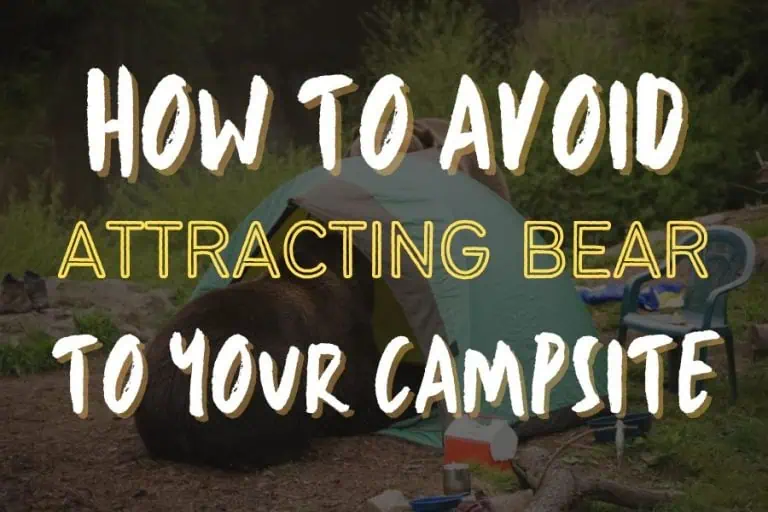Camping in the great outdoors can be an unforgettable experience, but nothing ruins a fun outdoor adventure faster than an unexpected visit from a bear.
If you want to avoid an uninvited furry guest rummaging through your gear, make sure you’re not making these six common mistakes that attract bears to your campsite.
You Smell Too Good
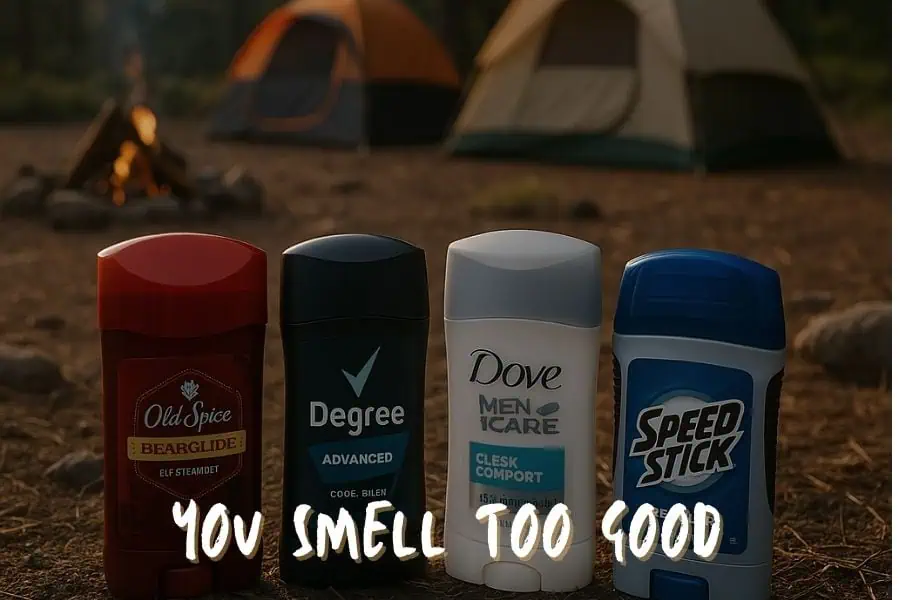
Bears have an incredible sense of smell—the strongest of any land mammal!
They can detect scents from miles away, and if you’re masking your human scent with deodorant, perfume, or essential oils, you might just smell like a snack.
Instead, opt for unscented personal care products and skip the fragrances while on an outdoor excursion.
You Didn’t Set Up Camp Right
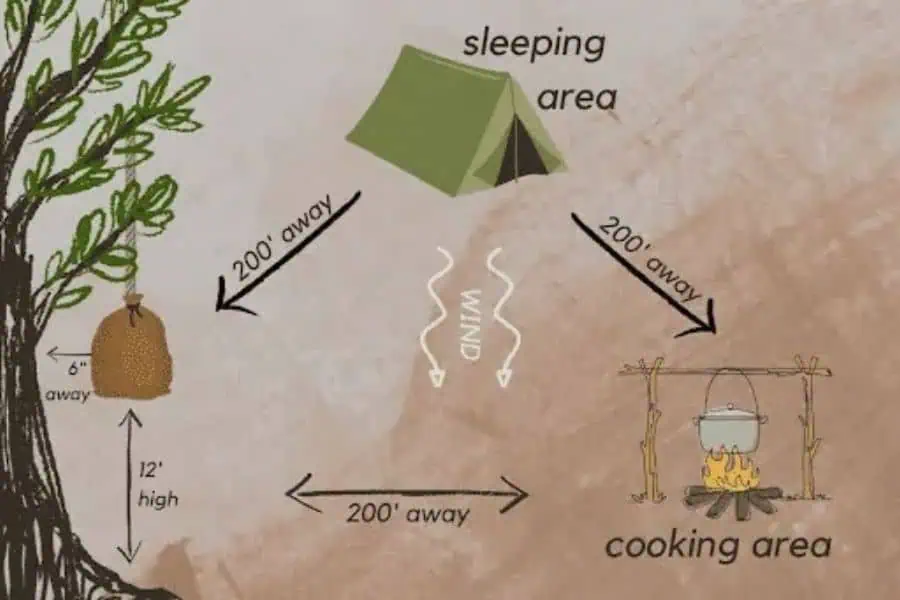
Where you set up your campsite matters.
Always camp away from trails, water sources, and natural wildlife corridors.
This consideration will keep you away from any regular routes your natural neighbors are likely to take.
When setting up camp, make sure you follow the “Bearmuda Triangle” rule:
Keep your sleeping area, cooking area, and food storage area at least 200 feet apart from each other in a triangular formation.
This setup keeps any potential bear or wildlife hotspots away from the rest of camp, and (most importantly) minimizes the risk of bears associating your sleeping space with food.
You Left Food Out
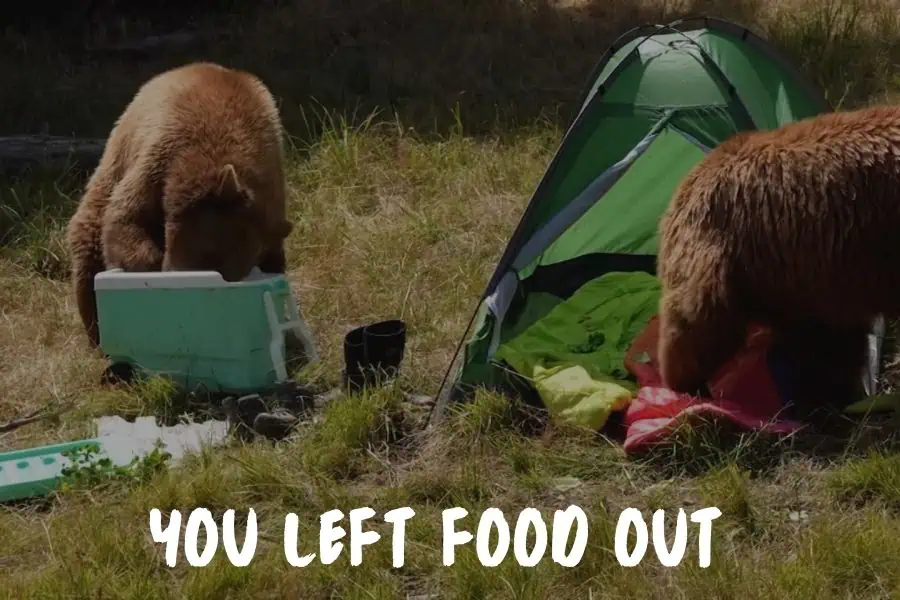
Leaving food out is a major bear attractant.
All food should be stored in an airtight container at least 200 feet away from your sleeping area.
There are a few strategies for effective food storage in the backcountry.
We’ve covered two of our favorites (and the most common) below.
Bear Canister
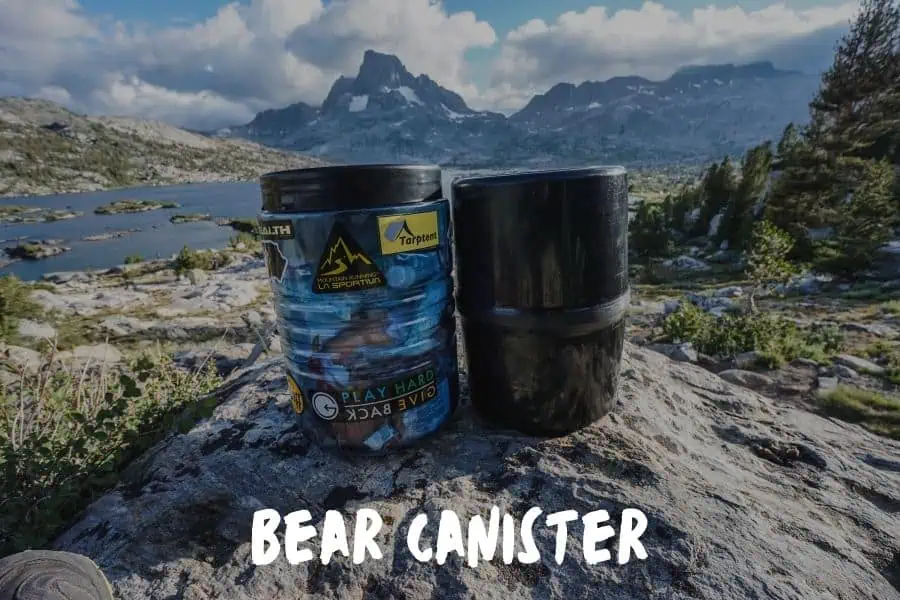
Bear canisters are containers that are specifically made to be impossible for bears to access.
If you’re headed out on a car camping trip, these are a great option for food and other “smellable” pieces of gear.
All you’ll need to do is place all your smellables in the bear canister or container, close it up, and leave it 200-300 feet away from your camp.
Even if a bear tries to rough up your container, they won’t be able to get in, and your food will be safe!
While you can absolutely bring some models of bear canisters on a longer backpacking trip, other models can be a little unwieldy in a frame backpack. Always do your research before purchasing!
Elevated Bear Bag
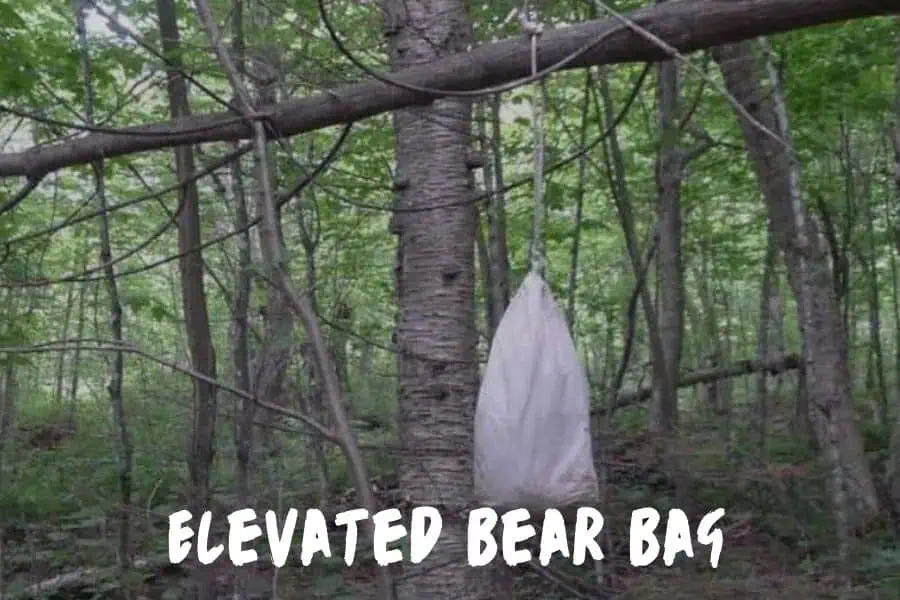
Bear bags are a great option for longer backcountry camping trips because the required materials are light and don’t take up too much space
All you’ll need are a few canvas (or another tough material) bags, a lengthy rope, and a tree.
You’ll place all your smellable gear and food stuff in the bags, and hoist them from a tree just outside your “bearmuda” triangle.
This strategy keeps all your smelliest gear far away from bear paws, keeping it safe and available for you the next morning.
Check out this how-to video on the best bear bag technique:
You Didn’t Clean Up Your Trash
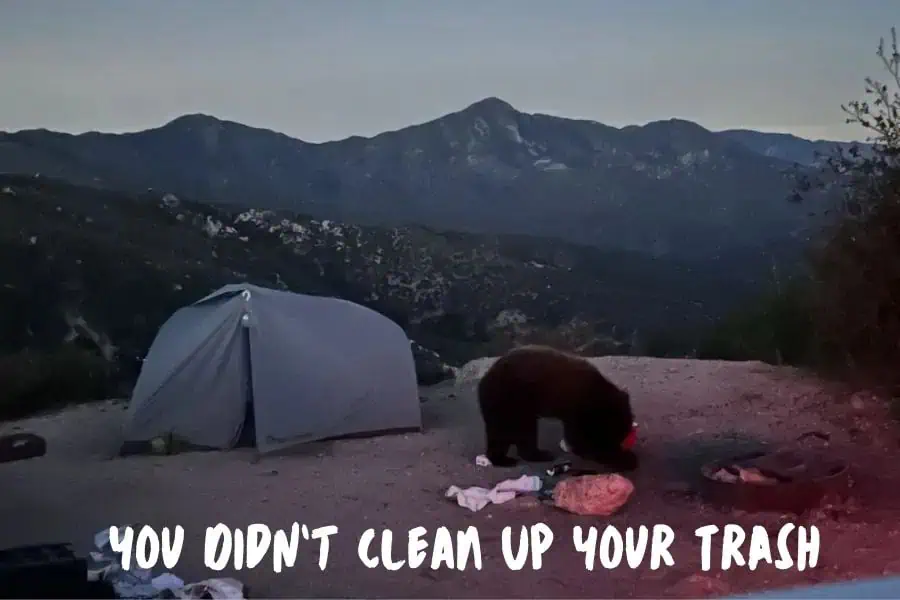
Even empty food wrappers and beer bottles can carry food scents that attract bears.
Always pack your trash with your other smellables overnight.
If you’re camping in a national park, you may have designated bear-safe garbage bins or a bear-safe trash can near your campsite.
Make sure you use them!
If you’re further in the backcountry, you’ll need to follow the guidelines we’ve outlined above for food storage for your trash as well.
Just make sure to keep your trash in a separate bear-safe bag or container from the rest of your food.
Your Clothes Are Dirty

Did you spill some chili on your jacket? Bears can smell even faint traces of food left on clothing.
Always bring a dedicated set of clean sleeping clothes to change into before bed.
Store any clothes worn while cooking or eating in a bear bag or an airtight container away from your sleeping area.
This trick is bear-smart, but it also feels nice to slip into a clean pair of clothes before you settle down for the night!
Your Camping Coolers & Containers Aren’t Actually Bear-Safe
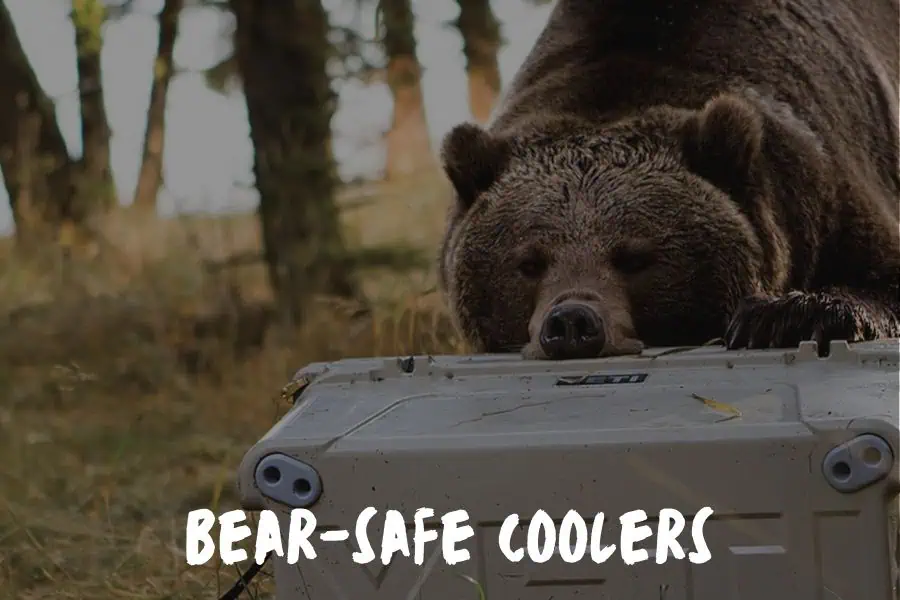
Not all containers are created equal! Just because a cooler or container is heavy-duty doesn’t mean it’s bear-resistant.
Look for International Grizzly Bear Committee (IGBC)-certified bear-resistant coolers.
To hold this certification, products are required to go through or technical evaluation OR pass a live animal test from the grizzly bears at West Yellowstone’s Grizzly & Wolf Discovery Center.
In other words, they’re the real deal. Check out the IGBC’s full bear-safe product list here.
Some of the heavy hitters include:
- ADOTEC’s Grizzly Bear Resistant Bag
- REI Traverse Bear Can
- Grizzly 45 Cooler
- YETI Roadie 48 Wheeled Cooler
Using an IGBC-approved bear-resistant container is the best way to keep your food (and the bears) safe.
A Note on Keeping Bears (And Yourself) Safe
It’s obviously important to keep yourself safe when you’re out camping. Bear-safe practices go a long way in achieving that goal.
In fact, all national parks and wilderness areas in the United States are constantly tracking bear activity to keep people and bears safe.
However, we wouldn’t be painting the full picture if we didn’t also mention that the tips and tricks above keep bears alive as much as they help humans stay in one piece.
When a bear gets into human food or trash, they’re finding a super easy way to get food for themselves. Often, they will stop using their natural bear skills and will continue taking the easiest route (looking for human food and trash).
This will increase both their proximity to and the frequency that they seek out human campgrounds. When they get to this point, all national parks and wilderness areas are required to mark the bear as a danger to the surrounding area.
Unfortunately, being on this list usually means that the bear has to be put down to protect humans camping in the area. Sometimes “problem” bears can be transferred to wilderness refuge and research centers, but this is pretty rare.
Stay Bear-Safe and Enjoy Your Adventure
By following these simple tips, you can enjoy your fun outdoor adventure without unwanted wildlife encounters
Whether you’re heading out with a hiking travel group or enjoying a solo trip, always remember:
Proper food storage, campsite setup, and hygiene can make the difference between a peaceful night under the stars and a surprise visit from a hungry bear.
Happy camping!


